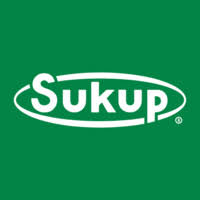Sustainability program spurs action

Tom Hadden thought the newly constructed East Village building that Metro Waste Authority had moved its administrative offices to just eight years ago was fairly energy-efficient. But through a public-private sustainability education program, the independent government agency is taking another look at its headquarters building to make it even more efficient.
Hadden, executive director of Metro Waste Authority, along with officials from the city of Des Moines and several other major employers, among them Hy-Vee Inc. and Principal Financial Group Inc., are participating in a six-month sustainabiity training program that wraps up next month.
The program is conducted by Natural Capitalism Solutions, a Colorado-based consulting group.
Half of the cost of the $60,000 program was funded through an Iowa Power Fund Community Grant, with the remainder of the cost paid for by the participating organizations.
“This is not just about education,” said Steve Wilton, Natural Capitalism’s chief operating officer, who resides in Boulder, Colo. “We have software tools to allow businesses to integrate sustainability into their organizations. Most of the focus is on energy efficiency – we’re very much about implementing energy efficiency measures within a business.”
At the final monthly session in May, each organization will present a sustainability plan that focuses on energy-saving initiatives that can be implemented.
“The feedback that we’ve been getting is that it’s been going very well,” said Rita Conner, economic development coordinator for the city of Des Moines. “We hope that the information is going to continue to get out there and be demonstrated. But we don’t foresee it being an ongoing program for the city. The idea was to have something really concentrated in a six-month period. Hopefully those relationships and synergies keep going after the program.”
Hy-Vee, which has already implemented numerous energy-efficiency initiatives, is taking a “wait-and-see approach” to the program, said Mike Smith, the company’s director of real estate and sustainability. Rather than sending a corporate executive to the training, Hy-Vee sent the store manager from Altoona and a representative from a subsidiary, Perishable Distributors of Iowa Inc.
“We wanted to see what could be learned outside of the corporate process,” Smith said. “The thinking was that if the process did bear fruit, we would certainly facilitate that.”
Hy-Vee will host the final meeting on May 11 at its West Des Moines headquarters, where each organization will present its plan.
Some of the changes the city of Des Moines will likely make will be to install more LED (light-emitting diode) lighting fixtures in its buildings, along with overhauls to heating and cooling systems, Conner said. “Anything that’s going to help reduce waste and cut costs,” Conner said. “A fair amount of it is behavioral changes; there are a whole host of things that can be done more efficiently and cost effectively.”
The city is involved in other sustainability initiatives that mesh well with this program, Conner said. In December, Des Moines was chosen by ICLEI – Local Governments for Sustainability as one of nine cities to test a sustainability rating system and performance management tool for municipalities. Among other cities testing the program are New York City, Boulder, Colo., and Chattanooga, Tenn.
In Iowa, the Power Fund has funded several other sustainability initiatives in the past three years. Those include:
• The city of Dubuque is creating an Integrated Sustainability Service model to enable the city and electric utility customers to track energy usage on a nearly real-time basis and to track the impact of usage changes.
• The city of Fairfield is conducting a sustainable city demonstration project, based on a goal of energy independence, community based energy solutions, carbon neutrality and a durable economic future. As part of that project, studies are under way to identify baseline data of energy use and green house gas production by source and by sector, and to identify opportunities for utilizing renewable resources.
Locally, Metro Waste Authority’s plan will address upgrades for its building at 300 E. Locust, where it leases the majority of the space to tenant organizations.
“We thought we were being pretty proactive,” Hadden said. “But we found there were ways we could improve energy efficiency. I think we’ll have a case study in how we can improve that building.”
Some of the potential upgrades may include better use of natural lighting, new heating and air conditioning controls and automatic shut-off sinks in the restrooms. “We want to make it aesthetically pleasing, but make it a nice place to work,” he said.
Hadden said Natural Capitalism’s approach makes sense to him because it helps organizations to plan for cost-effective changes.
“You have to make a case where environmental measures are based on economic fact,” he said. “There are just a lot of things you can do, but if you can show it’s cost-effective, then you get good buy-in. We think it’s a really good process to go through.”











